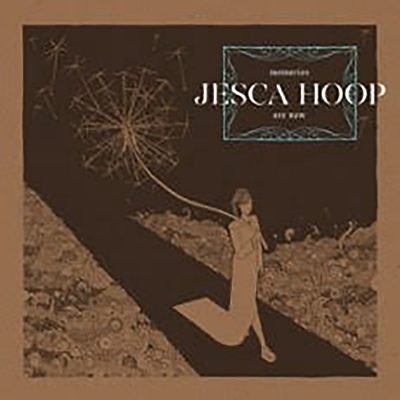
In the early 2000s, Tom Waits and his wife, Kathleen Brennan, took initiative and got their 25-year-old nanny and California native, Jesca Hoop, in contact with music publisher Lionel Conway and jump-started her career as a musician.
Since her employment with Waits’ family and subsequent “discovery,” 41-year-old Jesca Hoop has transformed herself into an eclectic musician. She is known for experimenting with many genres, including folk, jazz, blues and pop.
Since then, Hoop has released four albums and two EPs. These albums include 2007 “Kismet,” 2010 “Hunting My Dress,” 2012 “The House that Jack Built” and 2014 “Undress.” In 2016, she collaborated with Sam Beam of the one-man band “Iron and Wine” on an album, entitled “Love Letter for Fire,” where the two wrote and recorded the album’s songs together.
Her latest album “Memories Are Now,” released this Friday, exemplifies Hoop’s determination to not confine herself to a single genre. Each song on this album is diverse, but still stylistically similar, thereby establishing Hoop’s distinctive tone.
The album’s first song, “Memories Are Now,” is marked with a slow but rhythmic tone. Hoop’s voice is clear and distinct, and therefore stresses the importance of her lyrics.
A recurring theme in Hoop’s album is about refocusing on real life interactions, as demonstrated in the album’s third song, “Animal Kingdom Chaotic.” This song has an interesting and unusual beat as Hoop relates her message about the consequences of being too attached to the computer.
Continuing with the album’s theme of society relinquishing its dependence on technology, the fourth song, “Simon Says” is the first number to exemplify Hoop’s folk background. The folk genre further emphasizes the song’s message, as Hoop encourages her listeners to remember life before technology.
The best part of the album is, without a doubt, “Pegasi,” which is the second to last song in “Memories Are Now.” This number has a distinct, but not overwhelming folk vibe, and when combined with a great opening and a nice rhythm and flow, truly exemplifies Hoop’s talent as a musician.
The final song on the album, “The Coming,” is also spectacular. While the opening can be rather slow, the use of soft sounds of an acoustic guitar is essential to the raw themes of this song. “The Coming” deals with Hoop’s struggle and eventual breakaway from her Mormon faith. The song is not overly produced, which helps to convey the raw emotions associated with questioning one’s religion.
While there are some definitely well-done and powerful songs in “Memories Are Now,” this album is far from perfect. One of the greatest flaws of Hoop’s album is when she attempts to sing soprano in songs such as “Songs of Old” and “Unsaid.” When singing high notes, it is clear that either she lacks the training or her voice is not meant to go as high as it does in some songs. As such, some notes tend to fall flat, while others are downright cringe-worthy, thereby causing some potentially great songs to be just average.
Where Hoop shines, however, is when she is not experimenting with her voice by attempting to hit high notes. Her natural vocal talent gives her songs a sort of earthy and organic feel, and thoroughly establishes her as a folk singer.
Overall, Hoop’s album, “Memories Are Now” is not a perfect album, but nevertheless, it is still a relatively well-executed album. Many of the songs have a slow and dreamlike quality that gives the album a relaxed feel, and the many acoustic-sounding numbers further the album’s message of disconnecting oneself from technology. The album’s other recurring theme regarding Hoop’s relationship to religion is also powerful, as it seems to hold more personal weight to her, and the final song truly conveys these powerful and conflicting emotions.
“Memories Are Now” is definitely worth at least one listen, as it is clearly not meant for all music lovers. But for those who enjoy rhythmic and relaxing indie folk music, then Jesca Hoop’s album is well worth listening to.

















































































































